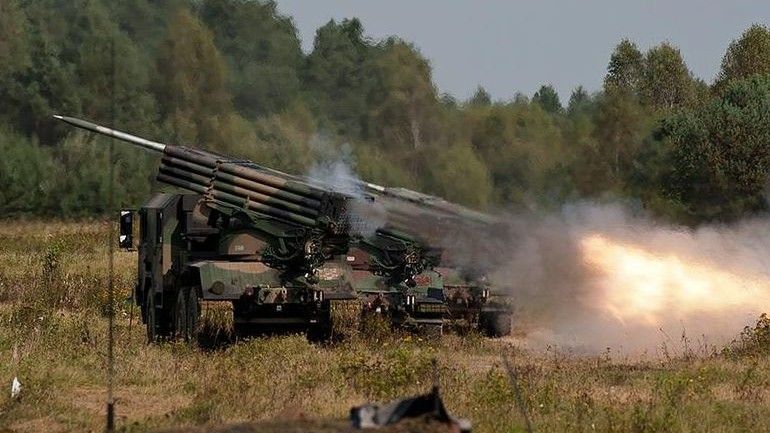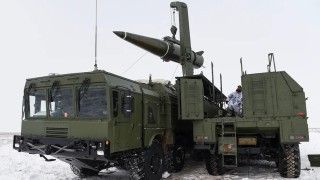- WIADOMOŚCI
Poland About to Increase Its Defence Expenditure up to the Level of 2.5% of GDP. A New Bill Introduced
Polish Ministry of Defence has announced a new bill assuming that Polish defence expenditure would reach the level of 2.2% of GDP, as of 2020, with a subsequent increase up to 2.5% of GDP until the year 2030.

Government Legislation Centre has Published a bill changing the Act on reconstruction and technical modernization and funding of the Polish Armed Forces. The document also introduces amendments to the Public Procurement Law Act.
According to the content of the bill, the national spending equivalent to the value at least s high as 2% of GDP is to be allocated to defence throughout the year 2018, with increase up to the level of 2.1% of GDP in the year 2019, 2.2% of GDP in the period between 2020 and 2023, with further growth up to 2.3% of GDP between 2024 and 2025, 2.4% of GDP in the years 2026-2029, with the defence expenditure finally reaching the level of 2.5% of GDP as of 2030 and beyond. The aforesaid plan is compliant with the assumptions of the Strategy for Responsible Development pursued by the Polish government.
The GDP value is to be calculated in relation to the gross domestic product indicator for the year concerned within the given budgetary act, not the preceding one, as it has been happening up until now. Considering the GDP growth we have been witnessing throughout the preceding period, this would translate into increased defence spending. The Act also assumes that the advance payments related to the defence procurement would be provided in a different manner, according to an amended set of principles.The top limit of the advance payment is to go up, from 25% to 50% of the value of the remuneration paid to the contractor. The basic assumption placed at the foundation of the undertaken steps is to make it possible to accelerate the modernization process in the Polish Army.
According to the new bill, the top limit of the number of personnel enlisted within the Army has been set at the level of 200 thousand soldiers (as compared to 150 thousand limit remaining in force now), whereas no more than 130 thousand positions are to be taken by the professional soldiers. The aforesaid change is related to formation of the Territorial Defence component of the Polish Army.
A number of relevant entries, assuming that defence expenditure would reach the level of 2.2% of GDP, as of 2020, with a subsequent increase up to 2.5% of GDP until the year 2030, has been included in the Strategy for Responsible Development adopted by the Polish Government. The bill outlines the path for implementation of the aforesaid provisions. It shall be noted that increase of the defence expenditure above the level of 2% of GDP is a condition which is necessary to be met, to ensure that the Polish military would take a generation leap, when it comes to the equipment utilized, due to the long-term backlog, also considering the need to expand the Armed Forces quantitatively.
The hypothesis of justified profile of the initiative of increasing the defence expenditure beyond 2% of GDP is proven, e.g. by implementation of the FY2016 defence budget. The spending in an amount equivalent to 1.99% of GDP had to be covered. Even though agreements concerning the Krab SPHs, Rak Mortar units, armament for the F-16 jets, Piorun and Pilica anti-aircraft systems, VIP Aircraft (the agreement concluded in March this year also influences the implementation of the last year’s budget) or optronic hardware, have already been signed, the most significant contract expected, concerning the Wisła medium range air defence system, has not been concluded yet, despite the fact that at the beginning of last year the Polish Ministry of Defence had declared that the Wisła programme agreement is to be signed within the year 2016. The value of the aforesaid programme is estimated to reach PLN 30 billion, whereas this year, the total amount of defence expenditure has been equal to PLN 37.4 billion.
During the year 2017, Homar ground-to-ground rocket programme is to reach the stage at which a relevant agreement would be signed. Polish Armed Forces are also awaiting procurement of helicopters for the Special Operations component, UAVs across a variety of classes, new infantry fighting vehicles, with multi-role fighter aircraft to finish with. Without a significant increase of the defence expenditure, implementation of the priorities listed above, within a realistic timeframe, would remain virtually impossible, especially when one takes the quantitative expansion plans concerning the military into account.















